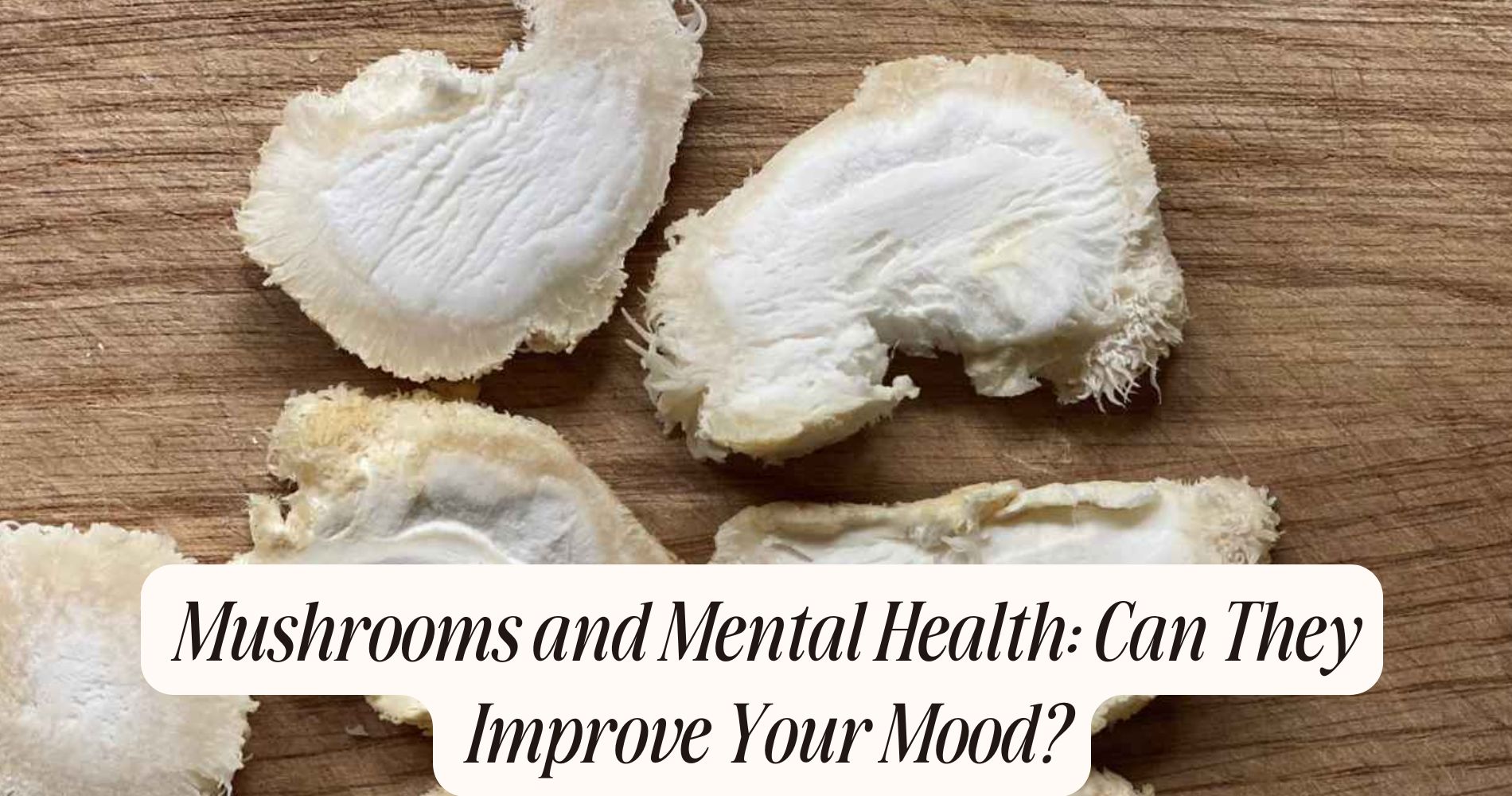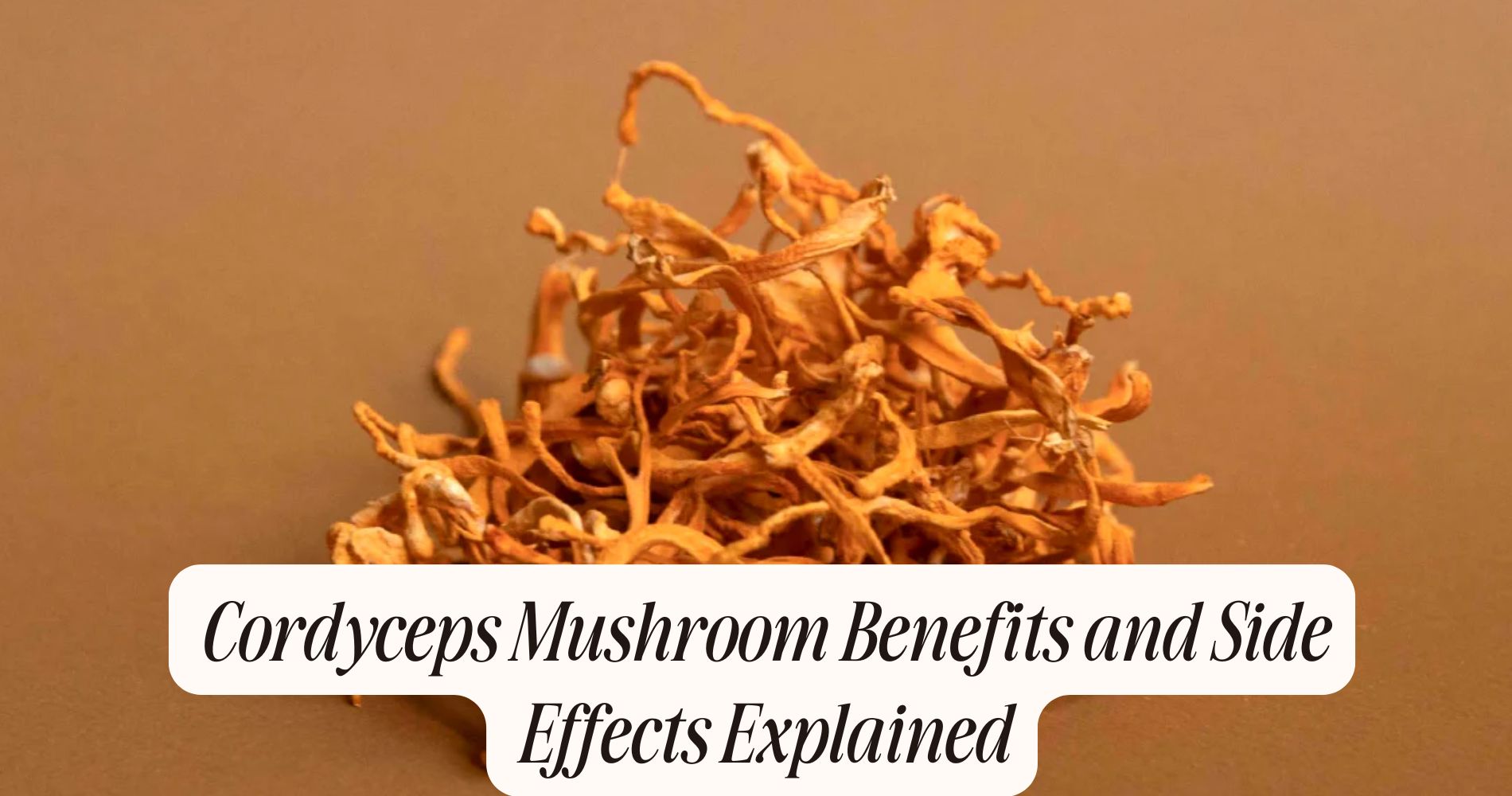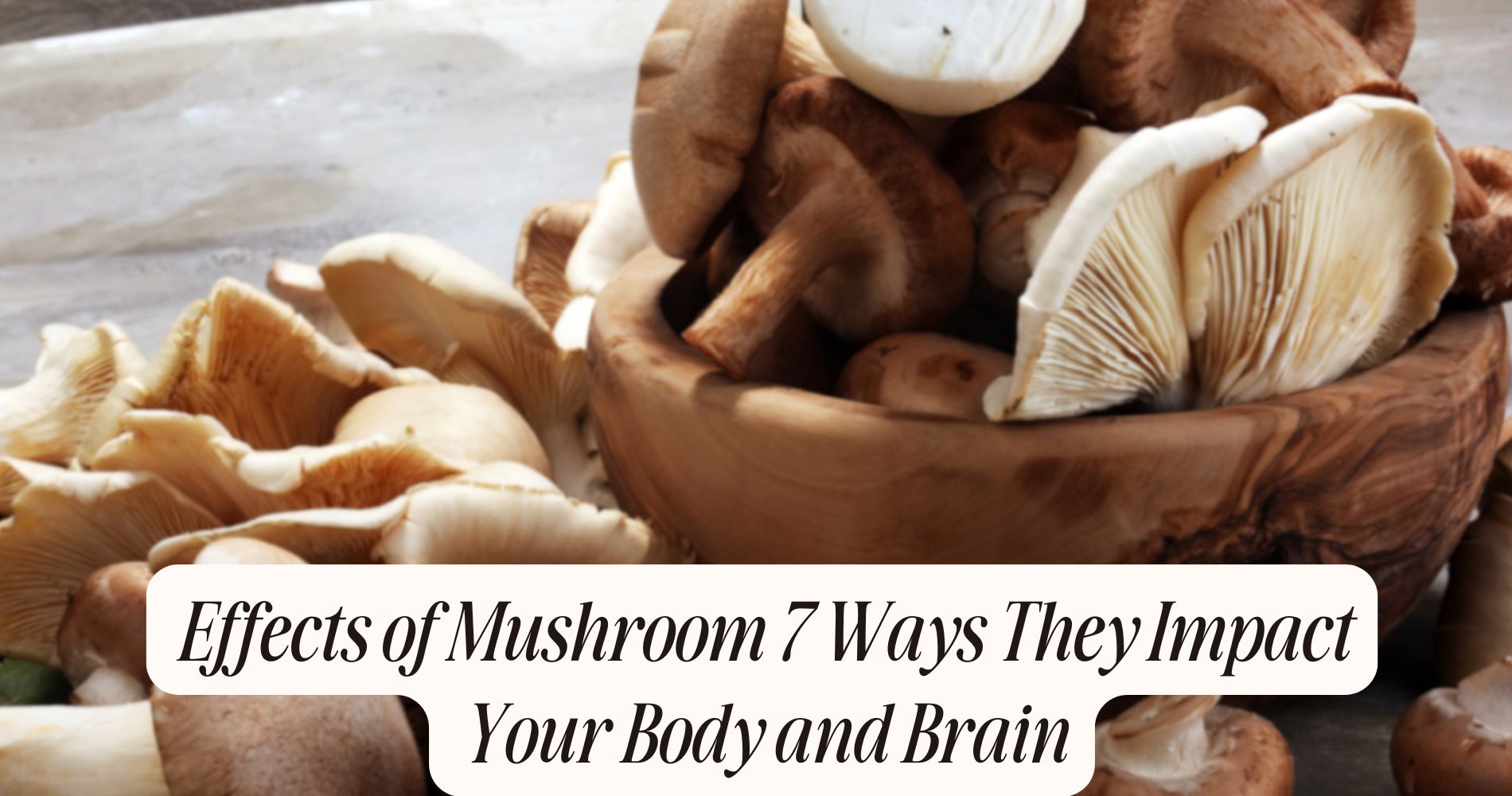
Mushrooms and Mental Health: Can They Improve Your Mood?
Understanding the connection between mushrooms and mental health opens new doors to natural mood support and emotional balance. Certain mushrooms, like those containing psilocybin, influence serotonin receptors that regulate mood and stress response. Others, such as Lion’s Mane, offer neuroprotective compounds like erinacines that may stimulate brain cell growth and improve cognitive function. Research continues to reveal the potential of mushrooms to reduce symptoms of depression and anxiety. However, proper dosage, legality, and professional guidance are crucial. Dive deeper to uncover how mushrooms may support your mental wellness journey.
The Science Behind Psilocybin and Mood Enhancement
While scientific curiosity about psilocybin is growing, the compound's potential role in mood enhancement that's drawing significant attention.
You might explore psilocybin therapy as a means to improve mood regulation, particularly for those struggling with mood disorders. Psilocybin, a naturally occurring psychedelic compound, interacts with serotonin receptors in the brain, potentially leading to improved emotional balance.
Clinical studies suggest that psilocybin therapy can effectively reduce symptoms of depression and anxiety. By modulating neural pathways associated with mood, psilocybin may offer a novel approach to mental health treatment.
As research progresses, understanding the precise mechanisms by which psilocybin influences mood regulation will be vital. It's important to approach this promising field with both optimism and scientific rigor.
Exploring the Connection Between Mushrooms and Neurotransmitters
Building on the intriguing potential of psilocybin in mood enhancement, it's vital to explore how mushrooms interact with neurotransmitters in the brain. When you consume certain mushroom compounds, they can modulate neurotransmitter activity, influencing mood and cognition.
Psilocybin, found in psychedelic mushrooms, primarily affects serotonin receptors, an essential neurotransmitter for mood regulation. This modulation alters perception and emotional states, which might explain the mood-enhancing properties observed.
Other mushroom compounds, like erinacines from Lion's Mane, may promote neurogenesis by interacting with nerve growth factors, indirectly affecting neurotransmitter levels. By understanding these interactions, you can appreciate the complex ways mushrooms might impact mental health.

This exploration of neurotransmitter modulation is vital for revealing the potential therapeutic benefits of mushrooms.
What Current Research Says About Mushrooms and Depression
Emerging research increasingly highlights the potential role of mushrooms in alleviating symptoms of depression. Scientists are particularly interested in certain mushroom varieties, such as psilocybin mushrooms, which contain compounds that may influence mood-related neurotransmitters.
Clinical trials have demonstrated promising results, indicating that these mushrooms can potentially reduce depressive symptoms. For instance, studies show that psilocybin-assisted therapy can lead to significant mood improvements in individuals with treatment-resistant depression.
Moreover, other varieties like lion's mane have been studied for their neuroprotective properties that might support mental health. Researchers are analyzing these mushrooms for their ability to promote nerve growth factor production, linked to improved emotional well-being.

While the results are encouraging, more extensive clinical trials are necessary to fully understand the efficacy and safety of these natural compounds.
Potential Benefits of Mushrooms for Anxiety Relief
Although research on mushrooms and anxiety is still developing, initial findings suggest that certain fungi might offer relief for those struggling with this condition.
Lion's mane, reishi, and psilocybin-containing varieties are among the mushroom types being studied for their potential in anxiety reduction.
Lion's mane is believed to stimulate nerve growth factor synthesis, potentially enhancing cognitive function and emotional resilience.
Reishi, often referred to as the "mushroom of immortality," may modulate the immune system and reduce stress.

Psilocybin, a psychoactive compound, has shown promise in clinical trials for its potential to alleviate anxiety, particularly in patients with life-threatening illnesses.
These mushrooms' bioactive compounds might interact with neurobiological pathways, suggesting a promising avenue for anxiety relief exploration.
Safety and Considerations When Using Mushrooms for Mental Health
When considering the use of mushrooms for mental health, it's important to evaluate their safety profile and potential risks.
You should first understand that the legal status of psychoactive mushrooms varies globally, affecting accessibility and regulation. In regions where they're legal, stringent guidelines govern usage.
Adhering to dosage guidelines is essential to avoid adverse effects like anxiety or paranoia. Start with a low dose, gradually increasing as needed while monitoring your response.
It's crucial to verify the authenticity of the mushrooms to prevent ingestion of toxic varieties. Consider consulting a healthcare professional before use, especially if you're on medications or have pre-existing conditions.
This cautious approach helps mitigate risks and enhances the potential therapeutic benefits of mushrooms in mental health.
A Smarter Way to Feel Good: SUPER MUSHROOM GUMMIES
If you're exploring the link between mushrooms and mental health, why not try them in a form that’s as enjoyable as it is effective? Well Gummies’ SUPER MUSHROOM GUMMIES are a convenient, chewable supplement made with 10 powerful functional mushrooms—including lion’s mane, reishi, and cordyceps. Designed to naturally boost brain function, enhance mood, and support immune health, these vegan-friendly gummies deliver benefits you can feel, without the crash or jitters. With a fresh wild berry flavor that tastes like your favorite candy, taking your daily wellness just got a whole lot sweeter.
Frequently Asked Questions
Can Culinary Mushrooms Also Impact Mental Health Positively?
You're wondering if culinary mushrooms impact mental health positively. They can, due to their culinary benefits that contribute to mood enhancement. Nutrients like B vitamins and antioxidants in mushrooms might support brain function and emotional well-being.
Are There Any Dietary Mushrooms That Can Boost Mood Without Psilocybin?
You might explore dietary mushrooms with unique nutrient profiles that could enhance mood. Varieties like Lion's Mane and Reishi contain compounds supporting cognitive function. Analyzing their antioxidants and polysaccharides reveals potential mood enhancement benefits without relying on psilocybin.
How Do Mushrooms Compare to Traditional Antidepressants in Effectiveness?
In clinical trials, mushrooms' effectiveness compared to traditional antidepressants varies. You're looking at different mechanisms and dosage comparisons. Limited studies suggest potential benefits, but more research is needed to determine their efficacy and proper dosages reliably.
What Are the Long-Term Effects of Using Mushrooms for Mental Health?
You might find long-term benefits from using mushrooms, including enhanced psychological resilience. They potentially promote neurogenesis and emotional stability. However, research is ongoing, so evaluate both benefits and risks with a healthcare professional before considering use.
Can Mushrooms Be Used in Conjunction With Other Mental Health Treatments?
You can combine mushroom therapy with other treatments, enhancing mental health through integrative approaches. It's crucial to consult healthcare professionals to guarantee safety and effectiveness, as interactions may vary based on individual conditions and existing therapies.
Conclusion
In exploring the connection between mushrooms and mental health, you're tapping into fascinating scientific territory. Psilocybin's potential to enhance mood is linked to its interaction with neurotransmitters, which current research suggests may alleviate symptoms of depression and anxiety. While promising, these benefits require careful consideration of safety and individual differences. By understanding these factors, you can make informed decisions about incorporating mushrooms into your mental health regimen, always prioritizing safety and professional guidance.




